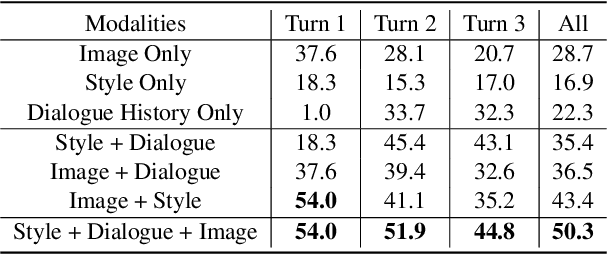Multimodal Conversational AI: A Survey of Datasets and Approaches
Paper and Code
May 13, 2022



As humans, we experience the world with all our senses or modalities (sound, sight, touch, smell, and taste). We use these modalities, particularly sight and touch, to convey and interpret specific meanings. Multimodal expressions are central to conversations; a rich set of modalities amplify and often compensate for each other. A multimodal conversational AI system answers questions, fulfills tasks, and emulates human conversations by understanding and expressing itself via multiple modalities. This paper motivates, defines, and mathematically formulates the multimodal conversational research objective. We provide a taxonomy of research required to solve the objective: multimodal representation, fusion, alignment, translation, and co-learning. We survey state-of-the-art datasets and approaches for each research area and highlight their limiting assumptions. Finally, we identify multimodal co-learning as a promising direction for multimodal conversational AI research.
 Add to Chrome
Add to Chrome Add to Firefox
Add to Firefox Add to Edge
Add to Edge